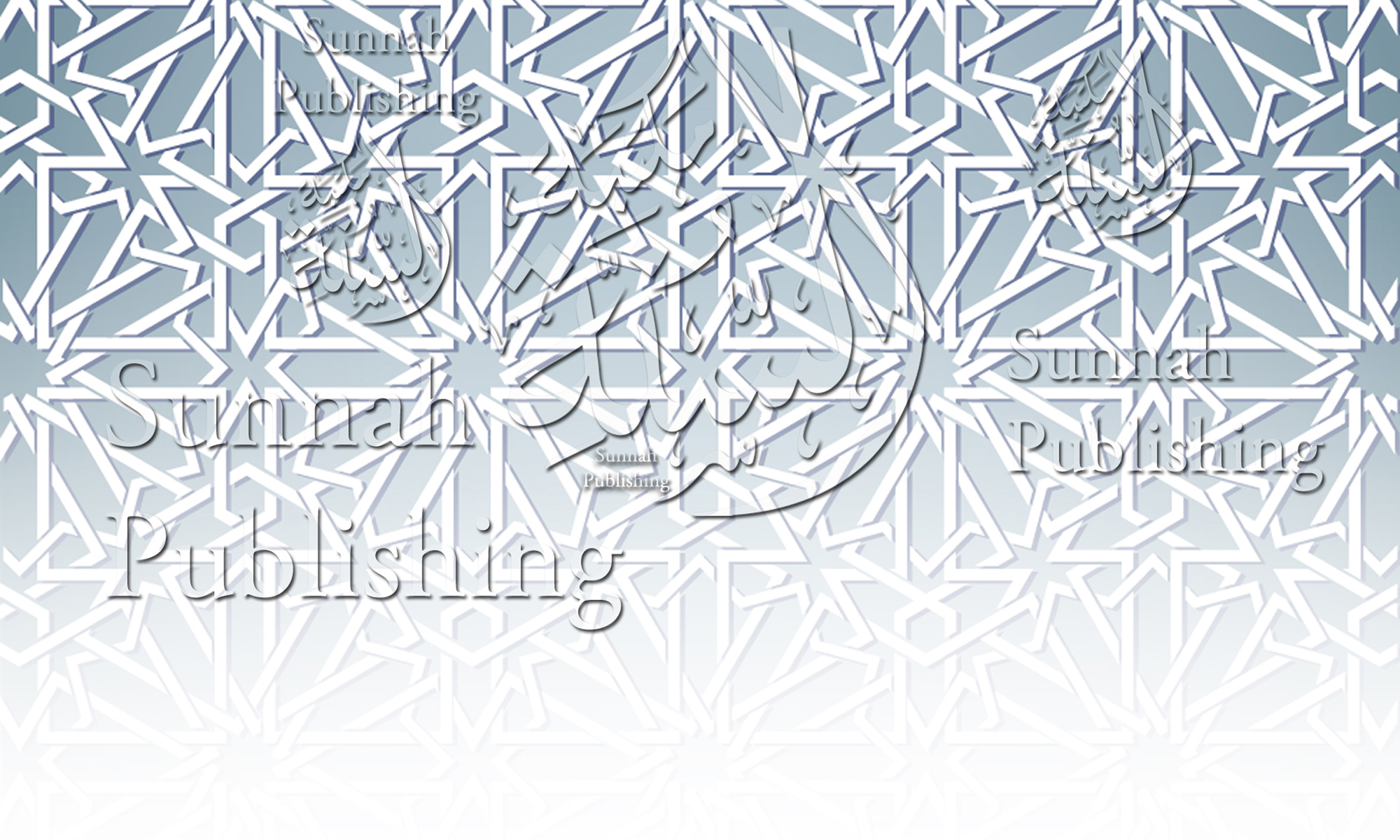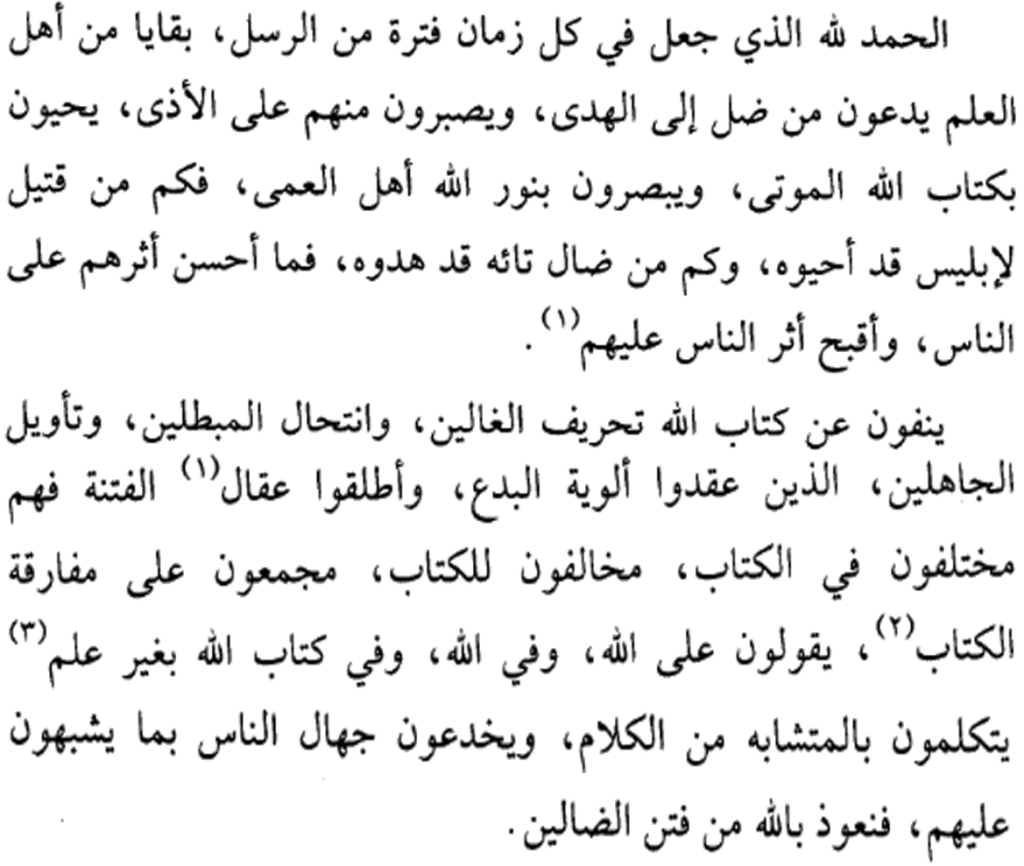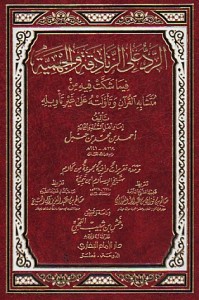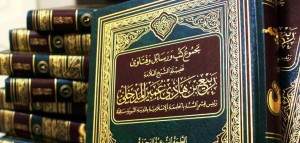 Imaam Muhammad Amaan Ibn ’Alee al-Jaamee (d.1417H) [1]
Imaam Muhammad Amaan Ibn ’Alee al-Jaamee (d.1417H) [1]
Allaah has legislated two ’Eed (days of festivities) for the Muslims in Islaam, and there is no third day. So He legislated each ’Eed after a significant act of worship and a pillar from the pillars of Islaam. One of them is ’Eedul-Fitr and the other is ’Eedul-Adhaa. [2]
As for ’Eedul-Fitr, then Allaah has legislated it to be upon the first day of the month of Shawwaal after completing the rites of fasting and night Prayer and other than those two forms of worship, from the types of acts that bring one closer to Allaah. These are the acts of worship that bring the servant closer to Allaah in the blessed month of Ramadaan. Allaah the Exalted has legislated fasting in this blessed month and He has made it a pillar from the pillars of the Religion of Islaam. And Allaah has set aside for fasting a reward that He has not set aside for any other act of worship. Therefore, the Messenger (sallallaahu ’alayhi wa sallam) said in that which he narrated from his Lord, ‘Allaah the Mighty and Majestic said, ‘Every deed the son of Aadam does is for himself, except for fasting. It is for Me and I will grant the reward for it.” And there occurs in the narration of al-Bukhaaree, “He abandons his food and his drink and his desires for My sake.” [3] So what a benevolent and significant connection this is! “Except for fasting, since it is for Me.” The connection shows the generosity and honour that Allaah has bestowed upon His fasting servant. So the Lord the Exalted connects the deed of His servant to Himself the Mighty and Majestic and He informs that He will grant His servant the reward for it. It is a reward whose excellence and benevolence cannot by accounted by anyone, except for Allaah the Glorified. Indeed, He is the Bestower of Goodness, the Generous.
Indeed, it has been authentically reported from the Prophet (sallallaahu ’alayhi wa sallam) that he said, “Whosoever fasts the month of Ramadaan with eemaan (faith in Allaah) and hoping for the reward of Allaah, then whatever has previously put forth of sins is forgiven.” [4] Likewise, it has been authentically reported from the Prophet (sallallaahu ’alayhi sallam) that he said, “Whosoever stands for Prayer on the night of al-Qadr (decree) out of eemaan and hoping for the reward of Allaah will have whatever has put forth of sins forgiven.” [5] So this is how Allaah has legislated the fast for us and how He has set aside the reward for it – the reward of those who observe patient perseverance.
“Indeed, the patient will be given their reward without account.” [Sooratuz-Zumar 39:10]
Likewise, Allaah has legislated standing for Prayer during the nights of Ramadaan. And it is a highly emphasized Sunnah established by the Messenger of Allaah (sallallaahu ’alayhi wa sallam).
And so, at the end of this tremendous blessing, Allaah has conferred upon His servants the legislation of ’Eedul-Fitr. They break their fast after a month of fasting and they enjoy in it the good things that Allaah has made lawful for them. And they go out to the place of Prayer with the most beautiful clothes that they have and they glorify Allaah the Exalted with the takbeeraat (i.e. saying Allaahu akbar) and they single Him out in worship and they praise Him and give Him thanks. They do this until they have prayed the two units of the ’Eed Prayer.
So the ’Eedul-Fitr therefore, is a show of gratitude to Allaah the Exalted for this momentous blessing, which we have mentioned previously. This is how the ’Eed is completed. Then they leave from the place of Prayer after listening to the sermon which is delivered upon this magnificent occasion. They leave and perhaps they are immersed in feelings of joy at the blessing of Allaah the Exalted. Allaah has granted them the success to fast, so they fasted. Allaah made the night Prayer easy for them, so they prayed it. Then they offered the ’Eed Prayer as a show of gratitude to Allaah for this success and ease.
Yes, they leave the place of Prayer greeting one another with well wishes for the ’Eed. This is how the ’Eed is concluded. They follow up the fasts of Ramadaan with six supererogatory fasts in the month of Shawwaal. Perhaps Allaah has decreed the fasting of six days in the month of Shawwaal in case of any shortcoming in the fasts of Ramadaan. Rather, the one who fasts these six days is like one who has fasted for an entire lifetime. The Messenger of Allaah (sallallaahu ’alayhi wa sallam) said, “Whosoever fasts for the month of Ramadaan and follows it up with the six days of Shawwaal is like one who has fasted for an entire lifetime.” [6] And this is so that people do not prolong the festivities of the ’Eed into extravagance and luxuriousness.
This is ’Eedul-Fitr and this is its meaning and its reality. And Allaah knows best.
As for ’Eedul-Adhaa, then Allaah has legislated it for us after an act of worship, which, in reality, is Jihaad without fighting. And it is the act of worship known as Hajj (pilgrimage) to the Sacred House of Allaah. Indeed, this meaning has been authentically narrated from the Prophet (sallallaahu ’alayhi wa sallam) in the hadeeth of ’Aa‘ishah (radiyallaahu ’anhaa) collected by al-Bukhaaree when she asked the Messenger of Allaah, (sallallaahu ’alayhi wa sallam), “Is there is Jihaad for the women?” So he (sallallaahu ’alayhi wa sallam) replied, “They have a Jihaad with no fighting: the Hajj and the ’Umrah.” [7]
And shortly before ending the rites of this tremendous act of worship – Hajj to the Sacred House of Allaah – Allaah has legislated ’Eedul-Adhaa for His servants on the tenth of Dhul-Hijjah after Allaah conferred upon the pilgrims to His House that they would stop on the Day of ’Arafah humble, repentant and submissive. And those who are not pilgrims fast on that day as worship. This is the fast through which Allaah expiates whatever has occurred in the preceding year and in the year to come. So it is a great ’Eed after a great day. It is a day of gratitude to Allaah the Bestower of blessing and excellence for the reward He has granted for the Hajj and for fasting.
And in this day, the servants of Allaah draw closer to Allaah, regardless of whether they are pilgrims or not. They perform the sacrifice so that the less fortunate and needy Muslims may eat from it after they themselves have eaten what is easy from it, in following the example of their Prophet Muhammad (sallallaahu ’alayhi wa sallam) and in gratitude to their Lord. And they conclude this day and the three days that come after it with the remembrance of Allaah the Exalted along with partaking in the comforts and enjoyments of good things that Allaah has made lawful for them from foods and drinks and other good things from the blessings of Allaah that cannot be enumerated or counted. This is how the lofty meanings and profound wisdom or the two ’Eeds of Islaam become apparent: ’Eedul-Fitr and ’Eedul-Adhaa.
As for these innovated gatherings which occur on various occasions, that some of the people have innovated after the passing the early virtuous generations for whom goodness was testified, then they have invented these gatherings and given them the title of ‘Islaamic celebrations.’ So these have nothing to do with Islaam at all. Rather, they are newly invented matters and every newly invented matter is an innovation and every innovation is misguidance.
So after all of that, these places also include the intermingling of the genders and they are an arena of social corruption and amusement and diversion and drums and dancing and clapping. They include these and other acts of al-Jaahiliyyah (pre-Islamic times of ignorance), which are known to one who is familiar with these celebrations. And using the term, ‘Islaamic celebrations’ after all of that for these innovated gatherings is considered, in my view, a crime against Islaam. And it is an affair that is not hidden from anyone with any insight or study into his Religion. And from the examples of these innovated gatherings is: al-Mawlidun-Nabawee (celebration of the Prophet’s birthday) and gathering for the night of al-Israa‘ (the Prophet’s night journey) and gathering for the middle night of the month of Sha’baan. Lastly, I add to this the other gatherings of Jaahiliyyah such as the ’Eed of al-Husayn and Zaynab and the ’Eed of al-Badawee and other than these two from the gatherings of Jaahiliyyah that Shaytaan has adorned for some people. And it is with great regret that we see the common folk of the Muslims and those who are like the common folk being more energetic in the establishment of these gatherings than in the establishment of the obligatory acts of worship legislated in the Sharee’ah. And Allaah is One from whom aid is sought.
Endnotes:
[1]: Taken from al-Majallatul-Buhoothil-Islaamiyyah, Volume 8, Issue 3, Dhul-Hijjah 1395H, corresponding to December 1975CE, Islamic University of al-Madeenah al-Munawwarah.
[2]: Translator’s Note: When the Messenger of Allaah (sallallaahu ’alayhi wa sallam) arrived at al-Madeenah, he found the people celebrating two days. So he said, “Indeed, Allaah has exchanged these two days with two better days for you: the day of an-Nahr (sacrifice) and the day of al-Fitr (feast of breaking the Ramadaan fasts).” Related by Aboo Daawood (no. 1134), Aboo Ya’laa in his Musnad (no. 3841), Ahmad in his Musnad (3/178, 250), al-Haakim in al-Mustadrak (1/294), al-Bayhaqee (3/277) and al-Baghawee in Sharhus-Sunnah (no. 1098). It was classified as Saheeh by al-Albaanee in Silsilatus-Saheehah (no. 2021).
[3]: Related by al-Bukhaaree (no. 1894, 1904) and Muslim (no. 1151).
[4]: Related by al-Bukhaaree (no. 34), Muslim (no. 1272), at-Tirmidhee (no. 618), an-Nasaa‘ee (no. 1592) and Ibn Maajah (no. 1631).
[5]: Related by al-Bukhaaree (no. 1777), Muslim (no. 1273), at-Tirmidhee (no. 735), an-Nasaa‘ee (no. 2178) and Ibn Maajah (no. 1316).
[6]: Related by Muslim (no. 1164), Aboo Daawood (no. 2433), at-Tirmidhee (no. 759) and Ibn Maajah (no. 1716).
[7]: Related by al-Bukhaaree (no. 2676), Ibn Maajah (no. 2896), Ahmad in al-Musnad (no. 23826).
Translation by Maaz Qureshi




